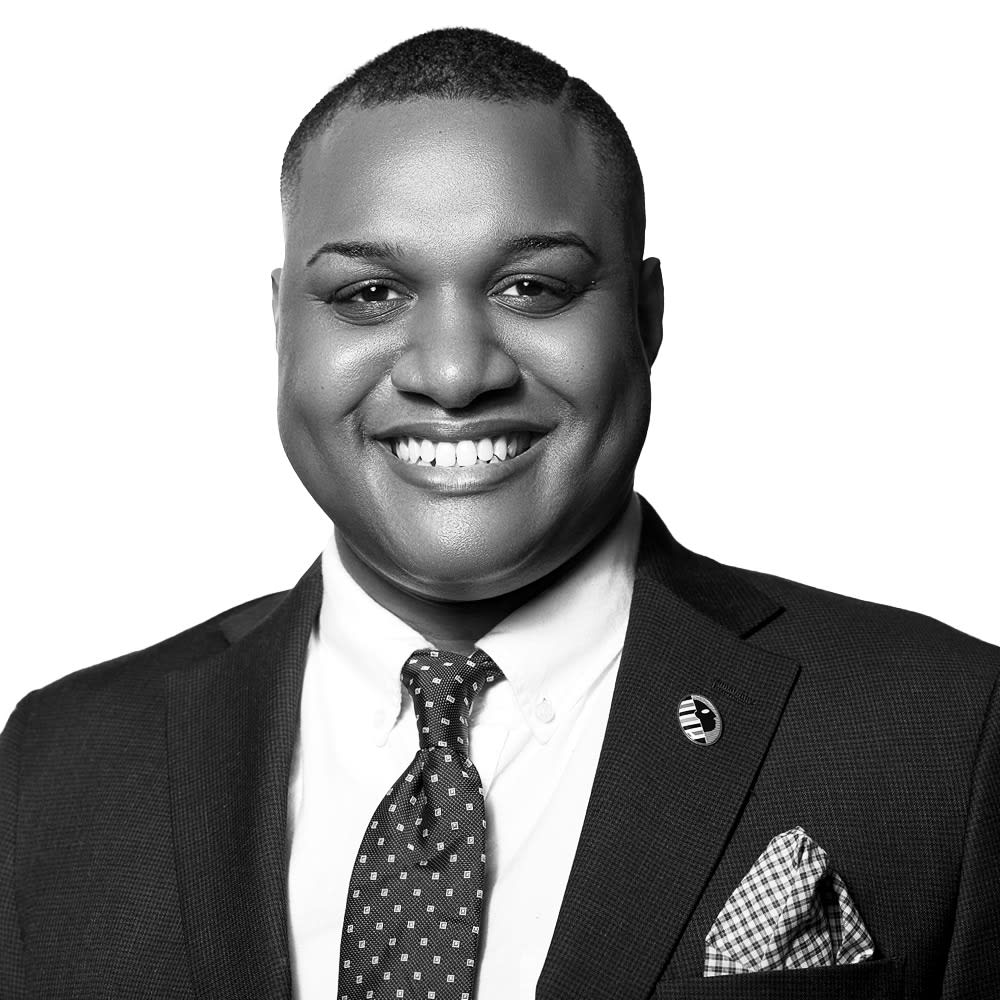The Derek Chauvin trial was nothing short of a trauma-inducing rollercoaster. For the past month, the world had to rewatch and be angered once more by the brutal killing of George Floyd, a Black father whose untimely death sparked racial uprisings last summer. For Black men like myself, the constant triggering went beyond the emotional testimonies and “both sides” debate on cable news—but in my social media direct messages.
“Are you watching this,” one of my white acquaintances on Facebook DM’d me the day of the verdict.
“Of course,” I instantly replied back.
ADVERTISEMENT
“It’s soooo much. I couldn’t sleep all night. This is a lot. Racism is a disease that needs to end. How could Chavin just kill him and think he could get away? This is really a lot,” they wrote.
“Yeah, it is,” I curtly replied back to try to end the conversation short.
But it didn’t stop there. This person went on for several paragraphs about how their anxiety was over the edge watching the trial, and how the verdict gave them “mixed feelings.” It was only after five minutes of nonstop messaging that they’d try to “apologize” for “being so emotional” and finally asked me, “how are you feeling about this?”
After being annoyed and rephrasing several initial messages that contained expletives, I simply found the proper way to shut this re-traumatizing conversation down.
“I don’t have the emotional capacity right now to engage on this topic,” I responded back.
They didn’t reply.
I had to send some form of this statement seven times on the day Chauvin was found guilty on all murder charges. Whether it was asking me to weigh in on the legality of the case, sending messages belabored with white guilt, or giving tales of how they were disgusted by Chauvin’s attorney, white people were emotionally dumping on me.
Therapists have defined emotional dumping as a situation in which a person is unconsciously sharing their feelings or perspective without considering the other person’s emotional state or needs. For example, individuals who emotionally dump are prioritizing their ability to blow off steam above the other person’s agency to reject it. In her book, The Empath’s Survival Guide: Life Strategies for Sensitive People, Thriving as an Empath, and Emotional Freedom, clinical psychiatrist Dr. Judith Orloff, explains how emotionally dumping is different from venting. She states the former act “feels toxic” with the person “in victim mode,” as the latter “feels healthy” and “shows accountability for their part in the issue.”
“Knowing the difference between venting and dumping is a positive start in having clarity in your relationships,” Orloff wrote in a guest op-ed for Psychology Today. “If someone starts dumping on you, it’s fine to excuse yourself...learning to protect yourself in this way, particularly if you are a sensitive person, is an important form of self-care.”
For many years, I couldn’t fathom how necessary it was to dismiss white people’s emotional dumping. I initially assumed such unwanted exchanges as a necessary evil in their journey to become more “woke”—a rite of passage for them to self-actualize the harms of racism in real time. But little did I realize how this was deteriorating my own self-care in this process. I was basically becoming a therapist for their white guilt, without any of them ever considering the emotional toll it was taking on me to hold their grief and mine.
I was becoming a mule, as my emotional labor was being expended on concerning myself with their disbelief, tears, and uncertainty about a racist system that I’ve given up on for many years. The Chauvin verdict, immediately followed with news of 16-year-old Ma’Khia Bryant being killed by a cop in Columbus, Ohio, made me realize how low my tolerance was for taking on the unwarranted spillage of white people’s concerns. As I began to be outraged by the news I was reading, being distracted by the overwhelmingly performative reactions from white people felt more infuriating than solidarity. Did they think my social media page was an unofficial Black trauma hotline for them to spill out their deepest, darkest, thoughts? Is this what they thought being an ally was all about?
Whatever the case, self-preservation has become my priority. It’s not that I don’t ever plan to engage in conversation with others on racial injustice— my line of work demands it. However, it would be helpful if white people invested in a paid professional, consultant, and/or therapist to address the trauma that their Black friends, colleagues, and acquaintances on social media don’t have the capacity to facilitate at the drop of the dime.
Making Black lives matter also means respecting the current emotional space of Black people. Reclaiming our time and peace of mind shouldn’t only be left to us among those who claim to be a part of the change.





